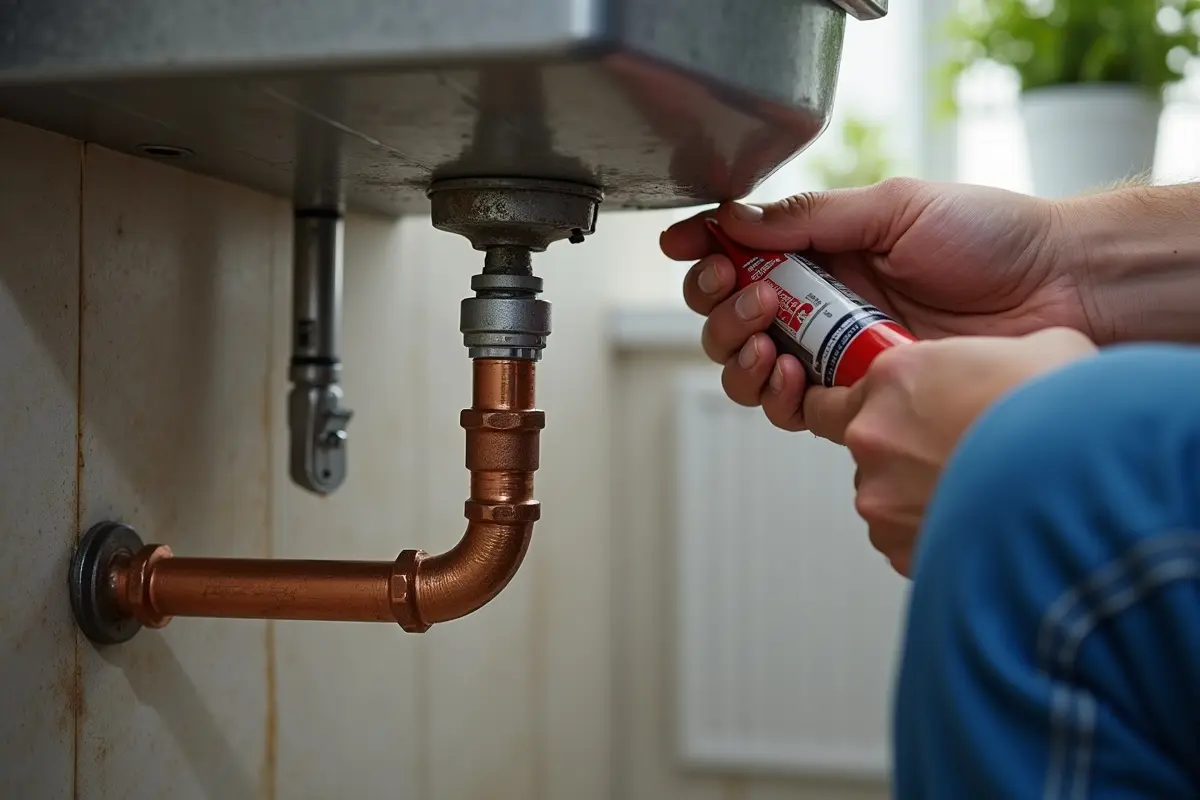No one wants to deal with a plumbing leak. The damage, the cost, the inconvenience—it’s a headache no one needs. But here’s the good news: most leaks are preventable with a little foresight and some regular maintenance. Imagine not having to worry about your floors flooding or your walls hiding mold. Sounds pretty great, right? If you’re ready to keep your plumbing in top shape, here’s what you need to know to stop leaks before they start.
Contents
Know Your Pipes
You might not spend much time thinking about your pipes, but they’re the backbone of your home’s plumbing system. To prevent leaks, you need to understand what your pipes are made of and their condition.
- Older pipes – If your home was built before the 1970s, there’s a chance you have old metal pipes, which are more prone to corrosion. Consider replacing them with modern alternatives like PVC or PEX, which last longer and resist corrosion.
- Cold weather concerns – Live in a colder area? Pay extra attention to exposed pipes, especially those outside or in unheated areas. Freezing pipes can lead to cracks, which then leads to—you guessed it—leaks.
Checking your pipes now and then for any signs of rust, discoloration, or wear and tear is a good habit to adopt. The earlier you catch these issues, the better. If you notice any problems, getting in touch with professionals like Milestone Electric, A/C, & Plumbing sooner rather than later is a must. This can stop future issues and save you a lot of money in the long run.
Keep Your Water Pressure in Check
It might feel great to have a strong water stream in the shower, but high water pressure can be a sneaky villain when it comes to leaks. Too much pressure puts strain on your pipes and joints, which can lead to small cracks that eventually grow into full-blown leaks.
How do you know if your water pressure is too high? Pick up a pressure gauge at any hardware store and test it yourself. Ideally, your water pressure should be between 40 and 60 psi. If it’s higher, you might need a pressure-reducing valve to protect your plumbing system. You’ll still have a nice flow, just without the risk of pipe damage.
Watch for Warning Signs
Leaks don’t just pop up out of nowhere—there are usually early warning signs if you’re paying attention. Catching these before they turn into a disaster can save you a lot of hassle.
- Dripping sounds – If you hear water running or dripping when no faucets are on, it’s a clear sign something is wrong.
- Wet spots – Notice damp patches on your walls, ceiling, or floors? This could mean a hidden pipe is leaking.
- Musty smell – A persistent musty odor in your home could indicate water damage or mold, both of which are common after a leak.
By staying alert to these signs, you can take action before the problem gets worse.
Regularly Inspect Appliances
Household appliances like washing machines, dishwashers, and water heaters are frequent culprits behind plumbing leaks. Over time, hoses and seals on these machines wear out, leading to small drips that can turn into major problems.
To prevent this, make a habit of inspecting these appliances. Check the hoses for any signs of cracking, bulging, or leaking. Also, make sure connections are secure and that there’s no water pooling around the base of the machines. If anything looks off, don’t wait—get it fixed or replaced before it becomes a bigger issue.
Clean Your Drains Properly
Clogged drains aren’t just annoying; they can also lead to leaks. When a drain is blocked, pressure can build up inside the pipes. This pressure can cause cracks or force water out through weak points, leading to leaks.
Avoid using chemical drain cleaners—they can actually corrode your pipes over time. Instead, use a drain snake or plunger to clear clogs, or better yet, prevent them by being mindful of what goes down your drains. Grease, food scraps, and hair are some of the most common clog-causing offenders. Keeping those out of your pipes will do wonders in preventing unnecessary pressure buildup and leaks.
Insulate Pipes in Cold Areas
If your home experiences cold winters, insulating your pipes is a must. When water freezes inside pipes, it expands, causing them to crack. Even a small crack can lead to a massive leak once the ice thaws and water starts flowing again.
Insulating your pipes, especially those in unheated areas like basements, garages, or crawl spaces, can prevent freezing. You can easily find foam pipe insulation at any home improvement store, and installation is usually as simple as wrapping the foam around your pipes.
Schedule Routine Professional Maintenance
No matter how diligent you are, there’s no substitute for a professional’s eye when it comes to plumbing. Scheduling routine maintenance with a plumber can help catch potential issues early and keep your system running smoothly. They’ll inspect things like your water heater, check for leaks, test your water pressure, and evaluate the overall condition of your plumbing. Think of it as a check-up for your home—better to be safe than sorry.
In Closing: A Little Prevention Goes a Long Way
When it comes to plumbing, being proactive is key. From keeping an eye on your pipes and appliances to managing your water pressure, these small actions can prevent bigger problems down the road. Plumbing leaks might seem like they come out of nowhere, but with regular checks and a little attention, you can stop most of them before they even start.
By taking care of your home’s plumbing system now, you’re saving yourself time, money, and a whole lot of stress later. Plus, you get the peace of mind knowing your home is safe from unexpected water damage. Sounds like a win to me!

